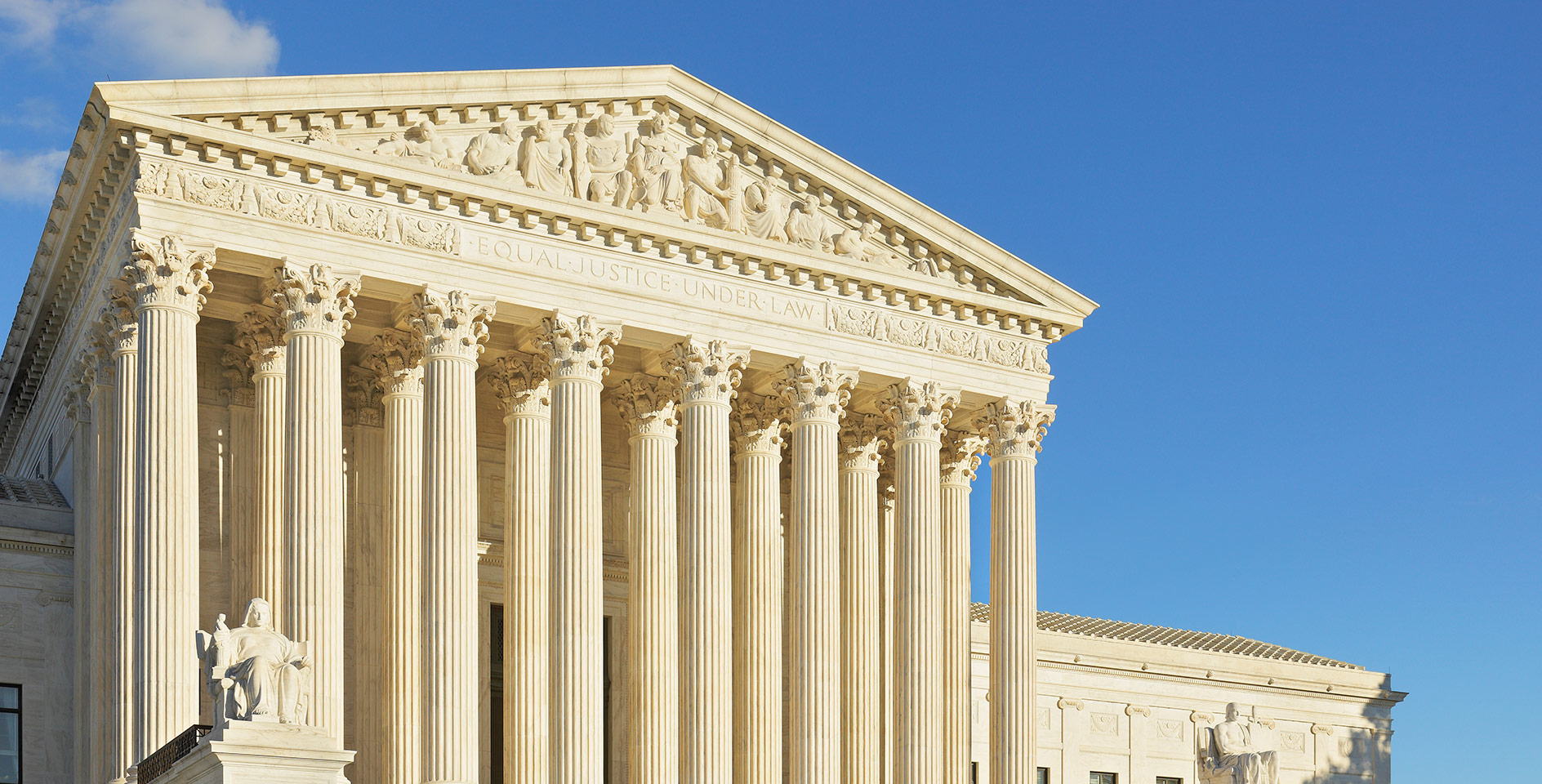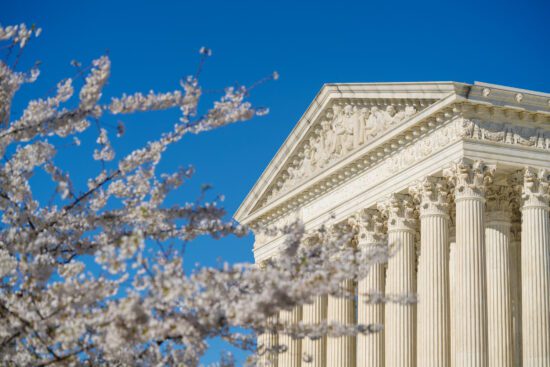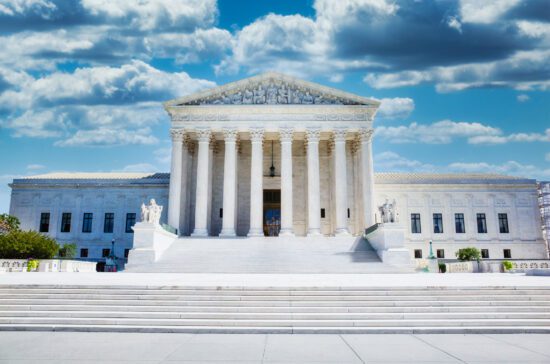In a 6-3 ruling of a consolidated group of cases styled Bostock v. Clayton County, the Supreme Court expanded the definition of “sex” to include “sexual orientation” and “gender identity” under Title VII of the Civil Rights Act of 1964.
When this legislation was passed in 1964, it is not seriously disputed that Congress intended the bill to address discrimination on the basis of biological sex. In the decades since, Congress has considered various kinds of civil rights legislation and has never voted to expand or redefine the term “sex” in the way considered by the court today. Today’s decision redefines the meaning of the word in law, despite the majority acknowledging the sweeping significance of this expansion of the scope of the Civil Rights Act.
The ERLC filed an amicus brief in these cases alongside other religious institutions contending that “sex” in Title VII does not include either classification of orientation or identity.
Chief Justice Roberts and Justice Gorsuch joined Justices Ginsburg, Sotomayor, Kagan, and Breyer in the majority, while Justices Alito, Kavanaugh, and Thomas dissented. The ERLC reviewed the court’s decision and made note of the top quotes in the majority opinion and dissents, which you can read here.
What is this case about?
This case primarily revolves around the definition of “sex” in the Civil Rights Act of 1964.
Though this sweeping decision will be known as the Bostock decision, this case, Bostock v. Clayton County, Georgia, includes two others, Harris Funeral Homes v. EEOC and Altitude Express v. Zarda. The court chose to consolidate these three cases into one because they all presented the same question: “Does discrimination on the basis of ‘sex’ include ‘sexual orientation’ as a part of ‘sex’?” Each of these cases involved individuals who claimed their employment was terminated either for their gender identity (as in Harris Funeral Homes) or sexual orientation (as in Zarda and Bostock).
As Christians, we believe that every person is made in the image of God, which means every person has immeasurable dignity and deserves to be treated with respect. At the 2018 Annual Meeting of the Southern Baptist Convention, the Messengers passed a resolution to “reaffirm the sacredness and full dignity and worthiness of respect and Christian love for every single human being, without any reservation.” The SBC’s commitment to love of neighbor is grounded in the truth that “God created man in His own image; He created Him in the image of God; He created them male and female.” (Gen. 1:26-27)
What is Title VII of the Civil Rights Act of 1964?
Title VII of the Civil Rights Act of 1964 prevents employers from discriminating against an individual “on the basis of his race, color, religion, sex, or national origin.”
After today’s decision, the definition of sex in Title VII now includes biological sex, sexual orientation, and gender identity. Effectively, Title VII can now be read as: “An employer may not discriminate against an employee because of his race, color, religion, sex, sexual orientation, gender identity, or national origin.”
How does this ruling impact churches and religious organizations?
Title VII itself includes a broad exemption for religious organizations. This exemption allows freedom for religious organizations to hire “individuals of a particular religion to perform work connected with the carrying on by such corporation, association, educational institution, or society of its activities.”
In addition, the Supreme Court has recognized, under a doctrine known as the ministerial exception, that religious organizations have broad rights to hire positions related to ministerial roles in the organization. This doctrine was most recently laid out in the 9-0 decision of Hosanna Tabor v. EEOC, but the Supreme Court also heard a case this term, Our Lady of Guadalupe School v. Morrissey Berruon, dealing with whether teachers at religious schools were included in the ministerial exception. A ruling is expected this summer and it will certainly shape the extent of the ministerial exception and have significant implications for religious liberty.
What does today’s ruling mean moving forward?
The Supreme Court redefined and expanded the word “sex” in the Civil Rights Act to include much more than a person’s biological sex.
In the dissent by Justice Alito, which Justice Thomas joined, he recognized that “for the past 45 years,” Congress has introduced bills to add sexual orientation and—more recently—gender identity, to the list of protections set forth in this anti-discrimination legislation. These bills, however, repeatedly failed to pass. Today, the Court chose to bypass Congress and the legislative process to add these protections itself.
And in his own dissent, Justice Kavanaugh lamented the Court’s decision to sidestep Congress and insisted that this move to boldly rework the definition of the word “sex” robbed legislatures of their ability to legislate.
This ruling will undoubtedly affect the religious freedom of employers in the future. Justice Alito discusses this concern in his dissent at length. He notes that today’s decision chips away at the protections included in the Civil Rights Act of 1964 that safeguard religious organizations from being forced to employ individuals whose lives or beliefs run contrary to the organization’s teachings or core beliefs.
Who will this ruling affect?
This ruling raises more questions than it answers.
The court was not clear on many issues that will stem from this ruling and the impact they will have not only on Christians, but others relying on religious freedom or conscience protections. Justice Alito asserted that “the position that the Court now adopts will threaten freedom of religion, freedom of speech, and personal privacy and safety.”
One thing to watch is the future autonomy of religious organizations in making hiring decisions. Currently, autonomy for hiring decisions for faith-based organizations rests on three protections that Justice Gorsuch outlines in his majority opinion: the Title VII religious organization exemption, the ministerial exception, and the Religious Freedom Restoration Act (RFRA).
What should Christians do in light of this ruling?
Although today’s ruling is undeniably problematic in legal terms of protecting religious liberty and proper statutory interpretation, there is still some cause for optimism. Justice Gorsuch, who wrote the majority opinion, pointed out in the ruling that the ministerial exception still applies to matters concerning faith-based institutions. Moreover, Justice Gorsuch also indicated that the Religious Freedom Restoration Act may supersede Title VII’s application in religious liberty questions.
The ERLC will continue promoting and defending the human dignity and religious liberty of all people and religious organizations in the courts, on Capitol Hill, and throughout the public square. Though we are disappointed with today’s ruling, we are far from hopeless. We will continue to share and demonstrate the truths of Scripture, including the order of creation and God’s pattern of design for men and women as revealed to us in Scripture. And we will do so with the kind of hope and confidence that can only be found in Christ.
In his response this morning to the court’s decision, Russell Moore wrote about the ever growing need to both teach and model for the next generation of Christians why the limitations and distinctions God gives us are good. Moore encourages the church to teach these truths by, “rejecting both a spirit of the age that would erase created distinctions between men and women and those that would exaggerate them into stereotypes not revealed in Scripture. This will mean also that we train up our children to see how such are matters rooted not in cultural mores but in the gospel itself.”
Moore concludes with, “what is needed is an ongoing demonstration of counter-cultural fidelity, accountability, love, and a recognition of the kinds of limits that make human life good and livable. And, at the same time, we can be the people who recognize that those who disagree with us are our mission field, to be persuaded, not a sparring partner to denounce. We must have both conviction and kindness, both courage and patience, both truth and grace.”









